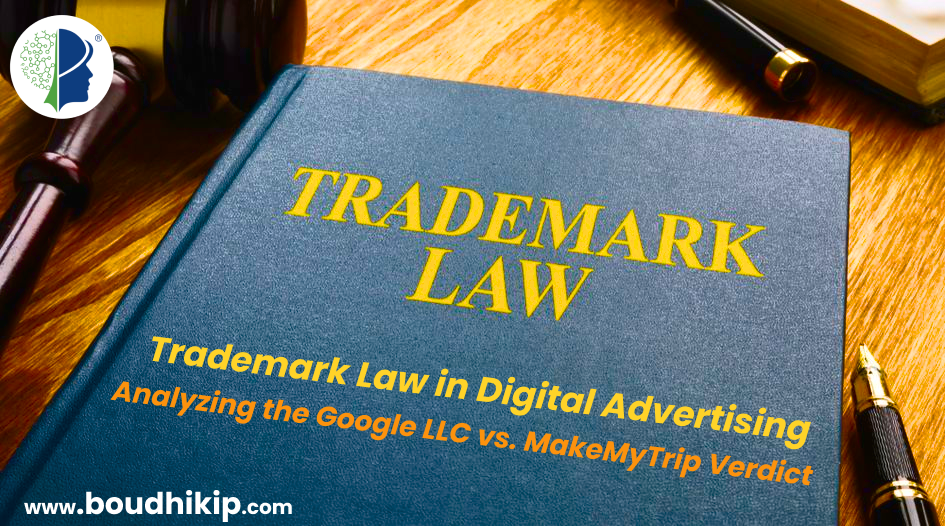Introduction:
The Delhi High Court recently delivered a groundbreaking ruling in the case between Google LLC and MakeMyTrip (India) Private Limited (MIPL), reshaping the landscape of trademark law in the digital realm. This case, centered on the use of trademarks as keywords in online advertising, provides a nuanced perspective on the intersection of trademark law and digital marketing practices.
Background of the Case:
MIPL, a prominent travel services company, filed a complaint against competitors, accusing them of using its trademarks—‘MakeMyTrip,’ ‘MMT,’ and ‘MakeMyTrip Hotels Ltd.’—as keywords in Google’s advertising program. Alleging trademark infringement under Section 29 of the Trade Marks Act 1999, MIPL sought redress from the court.
Initial Ruling:
The case began with an interim order favoring MIPL, restraining Google and others from using ‘MakeMyTrip’ as a keyword in the Google Ads Program.
High Court’s Analysis and Decision:
The Delhi High Court, in a thorough analysis, revisited and expanded upon precedents, notably the case of Google LLC v. DRS Logistics (P.) Ltd. and Ors. The Court emphasized that using trademarks as keywords in online advertising is not inherently infringing if it avoids customer confusion or unfair exploitation of the trademark’s reputation.
Key Takeaways:
- Trademark Use in Digital Advertising: The court’s decision underscores the intricate legal considerations surrounding trademark use in digital marketing, emphasizing the delicate balance needed to protect trademark rights while fostering fair competition.
- Impact on Legal Precedent: This ruling becomes a precedent for online platforms and advertisers, offering clear legal guidance on the nuanced use of trademarks to respect intellectual property rights while promoting services.
Conclusion:
The Delhi High Court’s recent judgment is pivotal in trademark law understanding. It emphasizes the symbiotic relationship between trademarks and online marketing, unraveling digital advertising intricacies. This decision highlights the importance of balance between trademark protection and online strategy dynamics, shaping a more informed approach to trademark management in the digital age.



